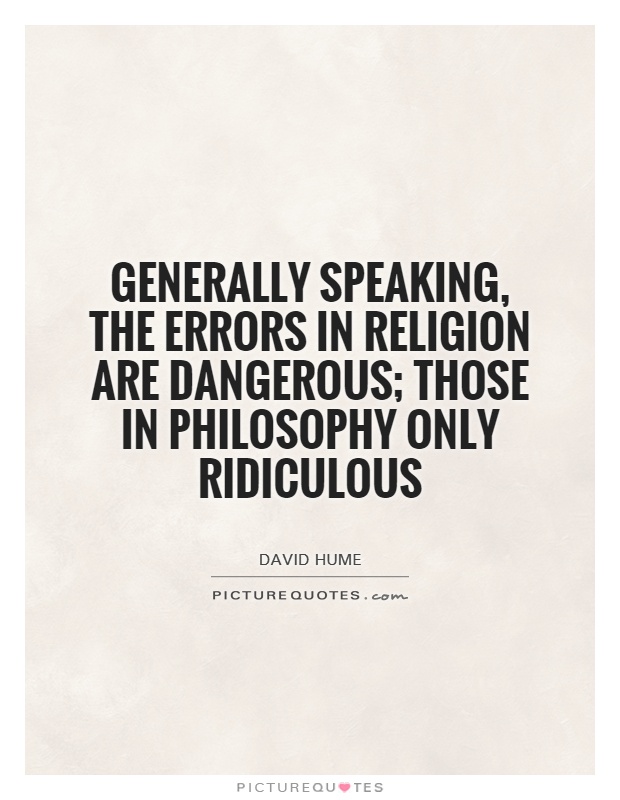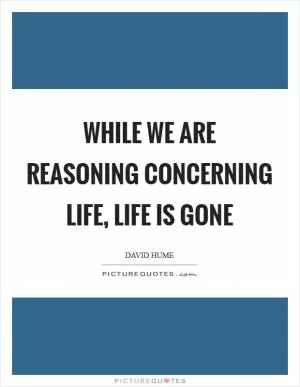Generally speaking, the errors in religion are dangerous; those in philosophy only ridiculous

Generally speaking, the errors in religion are dangerous; those in philosophy only ridiculous
David Hume, the renowned Scottish philosopher, is often credited with making significant contributions to the fields of philosophy and religion. His skepticism towards religious beliefs and his emphasis on empirical evidence have led many to view him as a critical thinker who challenged traditional religious dogma. In his works, Hume often explored the nature of belief, the limits of human understanding, and the role of reason in shaping our beliefs.One of Hume's most famous quotes is, "Generally speaking, the errors in religion are dangerous; those in philosophy only ridiculous." This statement reflects Hume's belief that while errors in philosophy may lead to absurd or illogical conclusions, errors in religion can have far-reaching and potentially harmful consequences. Hume was critical of religious beliefs that were based on faith alone, arguing that they lacked the empirical evidence necessary to support their claims.
Hume's skepticism towards religion can be seen in his famous work, "Dialogues Concerning Natural Religion," where he examines the arguments for the existence of God and questions the validity of religious beliefs. Hume argues that religious beliefs are based on subjective experiences and emotions rather than objective evidence, making them susceptible to error and manipulation.












 Friendship Quotes
Friendship Quotes Love Quotes
Love Quotes Life Quotes
Life Quotes Funny Quotes
Funny Quotes Motivational Quotes
Motivational Quotes Inspirational Quotes
Inspirational Quotes